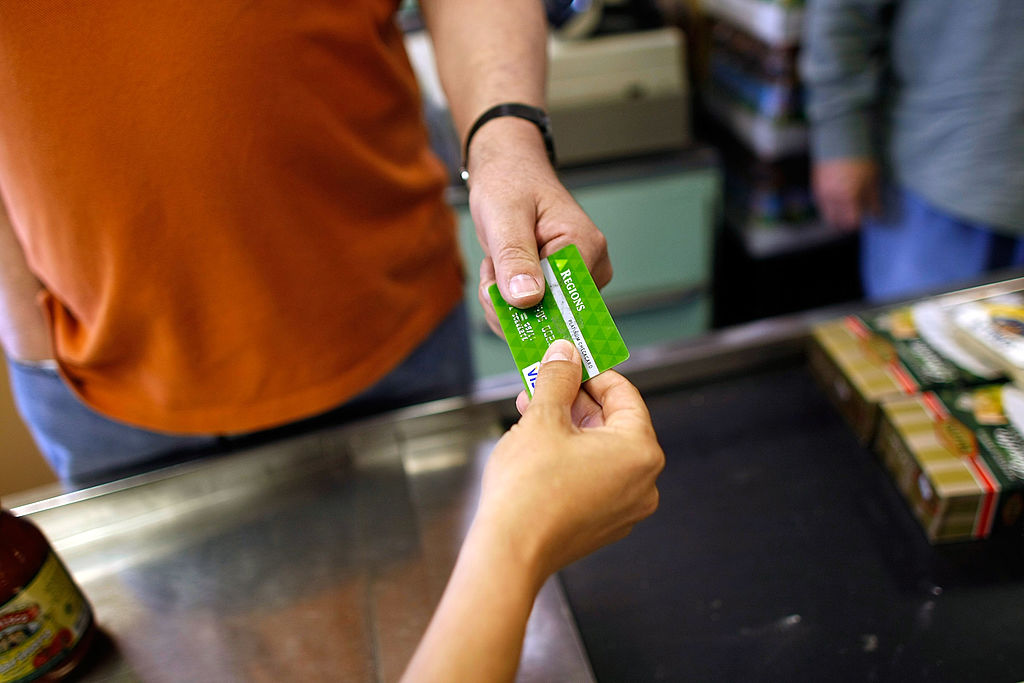“THE VIEWS EXPRESSED BY CONTRIBUTORS ARE THEIR OWN AND NOT THE VIEW OF THE HILL”
And yet you published it. The Hill is such garbage.
Richard Hunt is Executive Chairman of the Electronic Payments Coalition.
That was obvious way before this line at the bottom. It’s an option hit piece that spreads fear instead of substance.
Oh it gets worse- https://www.huntgroupdc.com/aboutrichardhunt
Article sounds like it was written by the credit card companies. I use a credit card for all purchases and pay off monthly and I got back 1500 dollars. That isn’t paying for a whole lot of travel for a family of four, which is what my household is. Also 1-2 % investment is a joke. My company pays 3% to process credit cards and if you take Apple Pay it’s higher.
It literally was written by a CC company exec, so spot on.
Article seemed super one sided. I like my cc points I get (i also pay it off every month), but this article is trash.
Richard Hunt is Executive Chairman of the Electronic Payments Coalition.
lol what a trash op-ed from a guy who clearly stands to lose from this.
It drives me crazy that people think credit card points are “free” benefits. You’re just getting your own money back! If you get 2% cash back or whatever, it’s obviously only possible because they’re charging merchants more than 2%, raising prices for everyone. It’s basically a hidden tax on everyone.
What’s worse is that it’s a regressive tax. The better credit cards with more benefits are available to the rich, not the poor. But the elevated prices are paid by everyone.
Credit cards have always charged retailers though, even before rewards were a thing. Rates vary, generally 3% or 4%, but some cards like American Express, can be a lot higher (which is why a lot of places don’t take AmEx).
I’m not sure what you’re arguing with your comment. Of course there’s a charge — the payment processing itself is a service that costs money — but are you implying that therefore credit card points really are a net benefit to consumers? With vague comments like yours, I will respond and people sometimes reply “I never said that”, but, then, what are you saying?
The “rewards” are costs passed down to the merchants over and above the cost of merely processing the electronic transaction. With the state of technology now, payment processing itself should cost fractions of a penny per transaction. Besides fraud protection, everything else is mostly skimming off of the top. This is why these sleazy companies are some of the most profitable on Wall Street.
No, what I’m saying is the article argues that rewards points are a function of credit card fees, when in fact credit card fees pre-date rewards programs.
Yes, some credit card fees are independent of funding the rewards programs, and some of those fees existed before widespread use of rewards programs. But so what? Today, some significant portion of those credit card fees definitely exist because of the rewards programs.
Societally, it is bad.
But since people lose their god damned minds over seeing the credit card fees, everyone pays them regardless of payment method.
So you really are getting a discount if you take advantage.
Unfortunately, yes.
If I pay my credit card off every single month, then I pay no interest and I get ‘rewards’ that works out to money back. Sure, retailers pay 1-2% in fees (assuming they’re a large retailer, and not a Square customer), and the people that don’t pay their card off get hit with 18% APR interest. But I get a check for a few hundred each year. Plus ‘discounts’ at certain merchants, or for specific goods and services.
My rewards are paid for in overall higher prices across the board, and by people that don’t have the financial luxury to pay off their credit card every month. The system rewards me for being lucky–although it claims that it’s ‘hard work’ and ‘smart financial choices’–and punishes other people. Not using the system as it exists doesn’t end up changing the system, because individually I have no leverage. So the best I can do it try to convince my legislators to change the legal structure, which can have unintended consequences.
IMO, credit/debit card payment systems should be handled by the US Treasury, so that there’s no profit involved at all.
IMO, credit/debit card payment systems should be handled by the US Treasury, so that there’s no profit involved at all.
Now that would be a nice change. Companies get a deal: Get regulated and play fair, or the government takes it over and you get nothing.
You’re not getting a discount, you’re just getting less screwed.
Word it however you like. It is still free money considering the state of the world
OK, I think we mostly agree. The wording is still important because there are, sadly, a lot of people who defend the practices of these credit card companies, fooled into thinking they’re getting a “deal”.
Removed by mod
But it if there is no escaping the ubiquitous credit card industry, shouldn’t I take advantage of the points so I’m not paying the 2 percent with no benefit to myself?
Don’t get me wrong, I heavily use and pay off my credit cards fully to get points. But that’s precisely the problem. They’ve set up a “tragedy of the commons” where they extract economic rent: Individually, we are incentivized to use the cards, even though, collectively, it costs us all more for no benefit to the economy or society. (I am talking specifically about the rewards program portion. The transaction processing is useful, but should not cost that much.)
Imagine if this was a functioning market: using your high rewards credit card would cost more at the till. Say using a 2% cash back card means your purchase costs 2.1% more than baseline. Would you do that? Of course not. But because of corrupt pro-Wall Street laws, it’s actually illegal to charge different amounts to customers for different cards.
I hear you. But I think it’s one of those things where it needs to be a regulatory or legislation change. If this is all permissible, I don’t think there is really a moral choice for the consumer to make in choosing to use a rewards generating credit card or other electronic payment option. I think the consumer in this scenario is only making the rational choice to maximize individual ends if these are the rules of the system, because regardless of what they do they are paying for it.
Agreed. I thought it would be evident by the fact that I admitted to using these programs myself that I’m not blaming consumers for using them.
That said, we do need to call out people who defend the credit card reward system, even if they do so out of ignorance. Otherwise, regulatory change is impossible.
I know its an opinion piece, but there appears to be only a single useful sentence in the entire article on the substance about the proposed change. It is this:
The bill would require credit card transactions to be processed on at least two networks, with one of them being a smaller, less well-known entityThats it. Thats all.
Everything else is opinion on how great credit card companies are, and how useful they are to consumers, and how regulation is bad.
Calling it opinion is too generous. It’s basically a print ad for the Electronic Payments Coalition, a lobbying group for credit card companies of which the author is executive chairman. They have spent a lot advertising against this, primarily the Hands Off My Rewards campaign.
If this article’s intent was to make me support the bill and want to wedgie the author, mission accomplished.
Friendly reminder, use the appropriate PPE!

No telling the last time they changed their underwear. Or, uh, you know. Wiped.Yeah, what a dipshit. “Stores make a 1-2% investment” fuck off, credit card fees aren’t an investment for the stores. The whole thing is as much as exercise of bad faith as the average Trump rally.
What is the law addressing that would hopefully benefit the people?
deleted by creator
Something to do with the interchange fees merchants pay to the bank every time you use your credit card. Story is claiming your credit card company will take away cash back and points if Congress interferes with one of the industry’s cash cows.
I would not even see that as a problem if it made it such that vendors got the same regardless of if they use cash or credit.
Credit card companies are not owned by the government. If there were no fees being charged for using them (fees currently paid by the businesses the cards are used at) then they would raise rates on apr to make up for it. While that wouldn’t harm me and if earning points went away I’d be sad (if points actually reduce or go away from it), it would mean everyone in the poor financial situation of having credit card debt (which is a huge amount of people) would owe even more money to the creditors.
What I do know is that wal marts and targets and amazon would just pocket the 2% or so that go to creditors right now. Their savings definitely would not trickle down to the consumer.
wal mart, target, and amazon price assuming the fees from credit cards and as much as I hate walmart it is in competition so it likely would actually result in lower prices. Large places don’t want to do a two tier the way small bussnesses will with cash vs credit. I agree that government does not own credit cards but that is irrelevant. The government can regulate companies and financial institutions, especially in regard to monopolies or in this case douopolies.
It’s unlikely that the Executive Chairman of the Electronic Payments Coalition would want to explain the potential benefits of the bill that would impact electronic payments.
The author “Richard Hunt is Executive Chairman of the Electronic Payments Coalition.”











